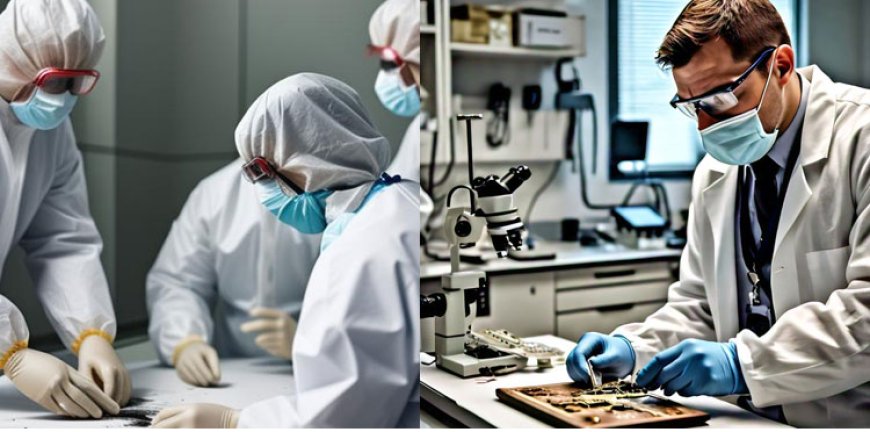**The Silent Witness: The Impact of Forensics on Crime Solving**

1.
**The Silent Witness: The Critical Role of Forensics in Solving Crimes**
Forensics, the application of scientific methods to criminal and civil law, is an essential component of contemporary investigations. It delivers crucial evidence that links suspects to crimes, exonerates the innocent, and ensures justice for victims.
### The Role of Forensics in Crime Solving
- **Identifying Victims:** Forensic experts use various techniques such as dental records, fingerprints, DNA analysis, and unique physical traits to identify deceased individuals.
- **Determining Manner of Death:** Forensic pathologists examine bodies to establish the cause and manner of death, providing insights into how the crime transpired.
- **Collecting and Analyzing Evidence:** Crime scene investigators gather evidence such as fingerprints, DNA, fibers, and hair. Forensic laboratories analyze this evidence to identify suspects and establish timelines.
- **Providing Expert Testimony:** Forensic specialists often testify in court, presenting their findings and explaining the scientific methods used, which is crucial in persuading juries of a suspect’s guilt or innocence.
### Common Forensic Techniques
- **Fingerprint Analysis:** Matching fingerprints found at a crime scene with known prints helps identify suspects.
- **DNA Analysis:** DNA profiling links individuals to crime scenes, determines familial relationships, and clears the innocent.
- **Ballistics:** Examining firearms, ammunition, and bullet wounds helps identify the weapon used and the trajectory of the shots.
- **Toxicology:** Testing bodily fluids and tissues for drugs, poisons, or alcohol reveals causes of death or impairment.
- **Entomology:** Studying insects helps estimate the time of death based on the stages of insect development on the body.
- **Document Examination:** Forensic document experts analyze handwriting, signatures, and documents to verify authenticity or detect alterations.
### Advances in Forensic Science
Forensic science is rapidly advancing, with new technologies and techniques enhancing crime-solving capabilities. Innovations in DNA analysis, digital forensics, and other areas have significantly improved investigative processes.
In conclusion, forensics is a cornerstone of modern criminal investigations. By providing crucial evidence and expert testimony, forensic professionals play a key role in ensuring justice and clearing the innocent. As technology progresses, forensics will continue to be integral to the criminal justice system globally.

















































